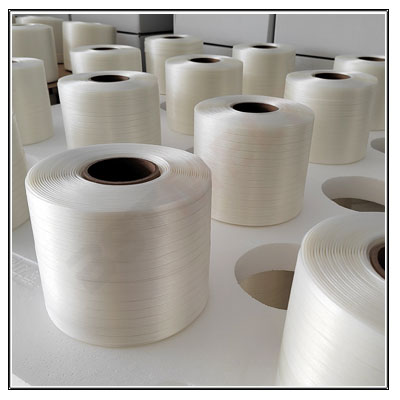- +86 136 65744767
- 09:00 AM - 5:00 PM
In the intricate web of global commerce, sustainability has emerged as a guiding principle for businesses seeking to balance profitability with social and environmental responsibility. At the heart of this movement towards sustainability lies baling strapping—an often-overlooked yet essential component of modern supply chains. With its role in securely bundling and packaging goods for transportation and storage, baling strapping plays a critical role in ensuring the efficiency, reliability, and environmental sustainability of supply chain operations.


Traditional baling strapping materials, such as steel wires or plastic bands, have long been the go-to choice for securing bales of goods ranging from cardboard and paper to textiles and plastics. While effective in their primary function, these materials pose significant challenges in terms of sustainability. Steel wires contribute to resource depletion and environmental pollution through mining and manufacturing processes, while plastic bands exacerbate the global plastic waste crisis, with millions of tons ending up in landfills or polluting oceans each year.
Recognizing the urgent need for more sustainable alternatives, industries are increasingly turning to innovative solutions that minimize environmental impact without compromising on performance or cost-effectiveness. One such solution is the adoption of eco-friendly baling strapping materials made from renewable or recycled resources, such as biodegradable plastics, natural fibers, or compostable polymers.
Biodegradable plastics, derived from plant-based sources such as cornstarch or sugarcane, offer a promising alternative to conventional plastic strapping materials. These biodegradable straps decompose naturally over time, breaking down into harmless organic compounds without leaving behind harmful residues or pollutants. Moreover, they can be produced using renewable resources, reducing reliance on finite fossil fuels and mitigating the environmental impact of plastic production.
Natural fibers, such as jute, hemp, or sisal, represent another sustainable option for baling strapping. These fibers are biodegradable, renewable, and readily available, making them an attractive choice for environmentally conscious businesses. Additionally, natural fiber straps can be composted or recycled at the end of their lifecycle, further minimizing waste and closing the loop on resource utilization.
Compostable polymers, engineered to degrade under specific environmental conditions, offer yet another avenue for sustainable baling strapping solutions. These polymers break down into compost, providing a nutrient-rich substrate for soil regeneration and plant growth. By incorporating compostable strapping materials into their operations, businesses can contribute to circular economy principles, where waste is treated as a valuable resource rather than a disposable commodity.
In addition to the materials themselves, advancements in baling strapping technology are driving further gains in sustainability and efficiency. Automated strapping systems, equipped with sensors, robotics, and computerized controls, optimize strapping processes for maximum efficiency and reliability. By minimizing human intervention and optimizing resource utilization, these systems reduce material waste, energy consumption, and labor costs, while maximizing throughput and product quality.
Furthermore, integrated tracking and traceability features enable real-time monitoring of bales throughout the supply chain, ensuring transparency, accountability, and quality control. By providing visibility into the origins, contents, and handling of bales, these tracking systems help identify inefficiencies, prevent losses, and improve overall supply chain performance.
The benefits of sustainable baling strapping extend beyond environmental stewardship to encompass economic and social dimensions as well. By reducing dependence on non-renewable resources, businesses can insulate themselves from price volatility and supply chain disruptions, while enhancing their reputation and brand value in the eyes of consumers, investors, and regulators.
Moreover, by investing in sustainable baling strapping solutions, businesses can support local economies, create green jobs, and foster innovation in materials science, engineering, and manufacturing. As demand for eco-friendly packaging continues to grow, opportunities abound for businesses to differentiate themselves in the marketplace, attract environmentally conscious customers, and drive positive change across industries.
In conclusion, baling strapping plays a pivotal role in shaping the sustainability of modern supply chains. By embracing eco-friendly materials, technologies, and practices, businesses can minimize their environmental footprint, enhance operational efficiency, and contribute to a more resilient and regenerative economy.

BSTSTRAP
No.30 building, Wuxing High-tech Venture Park
Huzhou City, Zhejiang Province,China
Whatsapp:+86 136 6574 4776
Monday to Saturday 9 am to 5 pm
hailey@bststrap.com
Send us your enquiry anytime!